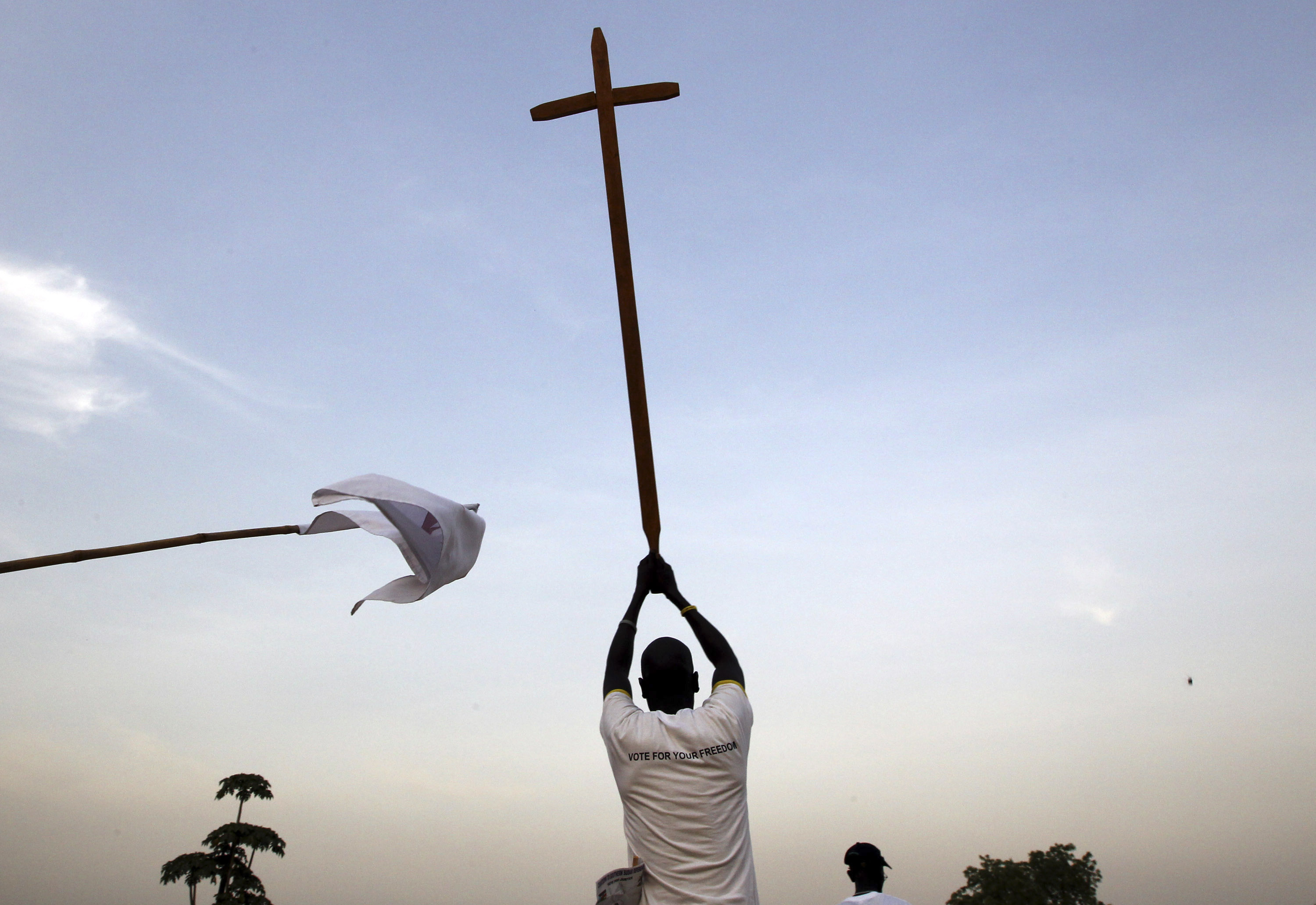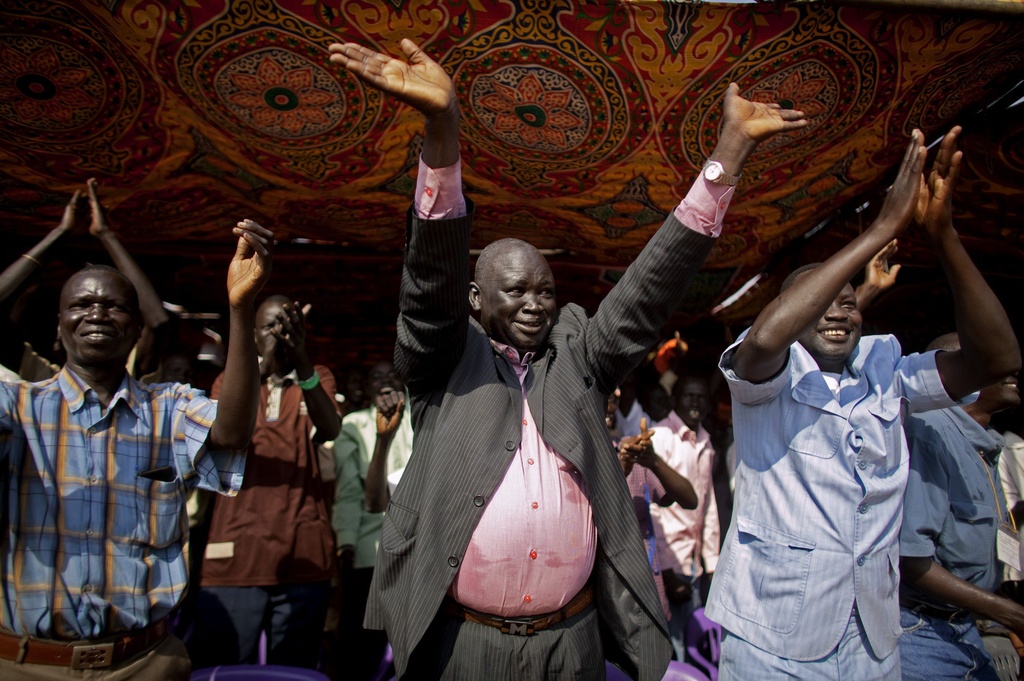“Political will” lacking to end Sudan dispute

Switzerland, which played an instrumental role in the 2005 peace accord between Sudan and South Sudan, has called for dialogue to resolve current hostilities.
Michael Winzap, Switzerland’s special representative for Sudan, South Sudan and the Horn of Africa, told swissinfo.ch that it was uncertain whether there was sufficient political willingness to pursue the negotiations through peaceful means.
Winzap was last in Khartoum in January 2012 and will soon return to the region. He says recent developments in Sudan and South Sudan are `worrisome’ and calls upon both republics to lay down their weapons.
Switzerland was instrumental in the Comprehensive Peace Agreement in 2005, which brought to an end a long-lasting civil war. The CPA ended on July 9, 2011, when South Sudan obtained independence.
swissinfo.ch: South Sudan apparently has withdrawn its troops from the oil field Heglig. Has this move warded off any immediate threat of war between Sudan and South Sudan?
Michael Winzap: The apparent withdrawal from the Heglig oil field has calmed down the tensions between the two Republics and hopefully will pave the way for political dialogue.
However, the negotiation process between the two countries is staggering and it is uncertain if there is sufficient political willingness to pursue the negotiations through peaceful means.
In that respect, Switzerland calls upon both parties to the conflict to lay down their weapons and to resolve their differences through dialogue. Switzerland has repeatedly offered its good services, whereas the official mediation mandate is led by the African Union.
swissinfo.ch: The immediate trigger of the occupation of Heglig was a dispute over the transport costs of South Sudanese oil to Port Sudan. What are the main issues preventing a settlement?
M.W.: On 9 January 2005 the National Congress Party (NCP) of North Sudan and the Southern People’s Liberation Movement (SPLM) signed the Comprehensive Peace Agreement (CPA), which ended the 22-year armed conflict between the two parties.
The CPA stipulated that during the CPA period which lasted until the day of the independence of the Republic of South Sudan, 50 per cent of the revenue originating from oil extraction from South Sudanese territory is given to the North. During the six and a half years of the transition period, the two signatories of the CPA were supposed to negotiate the post-referendum arrangements.
In case of the independence of the South the two parties had to find solutions on how the oil revenue was to be shared due to the fact that the pipelines exporting the oil from the South all lead through the north, to demarcate the border lines between the two countries, the way citizenship questions shall be handled for Southerners living in the North and Northerners living in the South, the way assets and liabilities shall be shared, the way cross border relations shall be structured and many more issues.
Unfortunately, the two parties have so far not been able to find solutions to these questions. The above mentioned issues will need a comprehensive agreement which under the recent developments has experienced a serious set-back.
swissinfo.ch: As oil production carries an enormous economic weight in both countries, what impact will conflicts have on state revenues?
M.W.: Until the independence of the Republic of South Sudan, approximately 75 per cent of the national income of the Republic of Sudan originated from the southern oil extraction; for the South this share amounts to some 98 per cent. For the two governments the oil revenue is important and therefore a solution is quite urgent.
After July 9, 2011 the two parties were not able to agree on a fee for utilising the pipeline. As a consequence, in January 2012, South Sudan stopped all oil extraction.
swissinfo.ch: In addition to this issue, there is a dispute about the region of Abyei and cross support for rebel groups. There are many hostilities, which may spark a war between the two countries.
M.W.: According to the CPA, a referendum should have taken place in Abyei last year. This referendum would have decided whether the region would belong to the North or the South. However, the two parties could not decide on who would have had the right to vote and who not. Therefore, the referendum is still pending.
The Abyei question is another unresolved issue between the two countries which needs to be addressed in order to assure a peaceful coexistence. The international community can support the two countries in their negotiation efforts.
swissinfo.ch: What can the international community – and Switzerland in particular – do to prevent further acts of war?
M.W.: The international community can call on both countries to immediately cease hostilities and to respect international law.
swissinfo.ch: Are any foreign countries involved in the planned discussions between Sudan’s President Omar Al Bashir and President of South Sudan, Salva Kiir?
M.W.: The talks between the two countries are mediated by the African Union High Implementation Panel (AUHIP) under the leadership of former President of South Africa, Thabo Mbeki. In parallel, several countries try to foster the negotiation process. Finally, the UN does its utmost to engage the two parties in a political dialogue.
swissinfo.ch: Do the occupation of Heglig and ensuing hostilities endanger the sovereignty of South Sudan?
M.W.: On July 22, 2009 the Permanent Court of Arbitration attributed the Heglig oil field to North Sudan. A military invasion into Heglig is in contradiction with international law and does not respect Sudan’s sovereignty.
swissinfo.ch: Do renewed hostilities jeopardise Switzerland’s commitment to development policy? South Sudan is one of the countries where Switzerland has been taking measures to protect civilians.
M.W.: The recent developments are worrisome. Since the hostilities are taking place in the border areas, most ongoing Swiss activities continue.
However, the training modules (military law, international law) of the Department of Defense, Civil Protection and Sports (DDPS) in benefit of the South Sudanese army are presently being reevaluated and the humanitarian aid [unit] is preparing for more internally displaced people and refugees.
If the hostilities were to increase, Switzerland would need to adapt. Presently Switzerland is closely observing [developments].
First conflict:
The first civil war between the north and south of Sudan broke out in 1955, one year before Sudan gained independence from British-Egyptian rule.
500,000 dead:
After several years of low-level conflict, the north-south war intensified at the beginning of the 1960s. Around half a million people were killed throughout the first war.
Peace:
The Southern rebellion signed a peace agreement with the government of Khartoum in 1972 at Addis-Ababa. The agreement did not grant the south the right to hold a referendum on independence but guaranteed them the creation of an autonomous region.
Second conflict:
The dissolution of the semi-autonomous government of Southern Sudan in 1983 by Khartoum plunged the north and south into a second civil war which ultimately cost the lives of two million people.
Peace:
The war ended in 2005 with the signing of an peace accord. Six months later the leader of the Southerners John Garang was killed in a helicopter accident.
Referendum:
The referendum on self-determination for Southern Sudan took place in January last year, following which Southern Sudan’s independence entered into force on July 9, 2011.
Renewed conflict :
Sudan and South Sudan have been drawing closer to a full-scale war in recent weeks over the unresolved issues of oil revenues and their disputed border.
Source: AFP and swissinfo.ch
Northern Sudan has an Arab-Muslim culture.
Southern Sudan, closer to the tribal and traditional culture, is animist and partly Christian.

In compliance with the JTI standards
More: SWI swissinfo.ch certified by the Journalism Trust Initiative












You can find an overview of ongoing debates with our journalists here . Please join us!
If you want to start a conversation about a topic raised in this article or want to report factual errors, email us at english@swissinfo.ch.